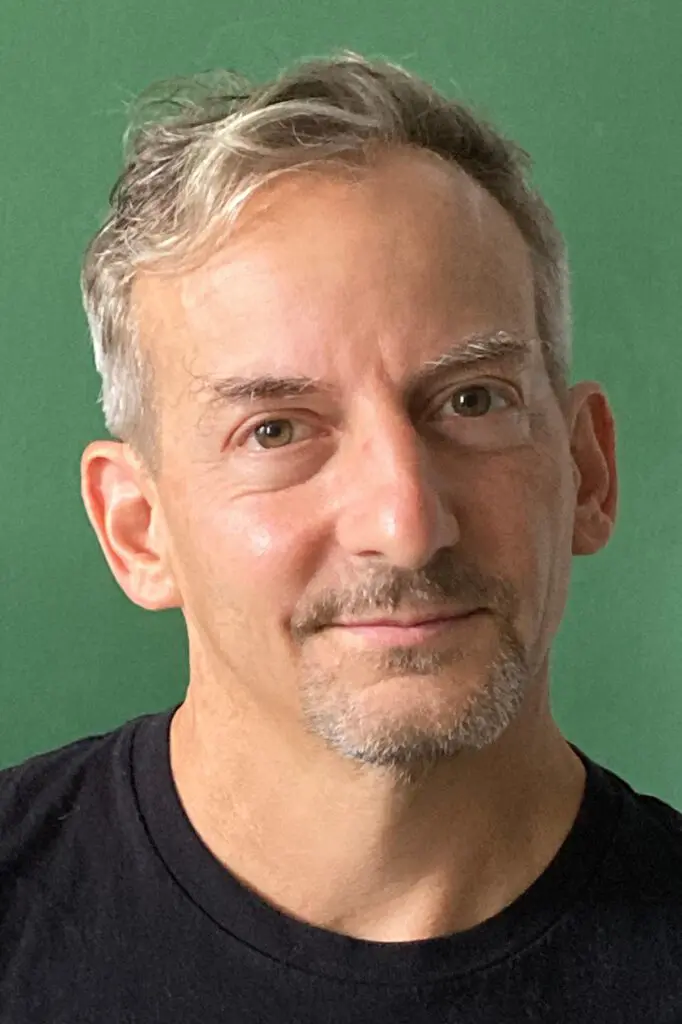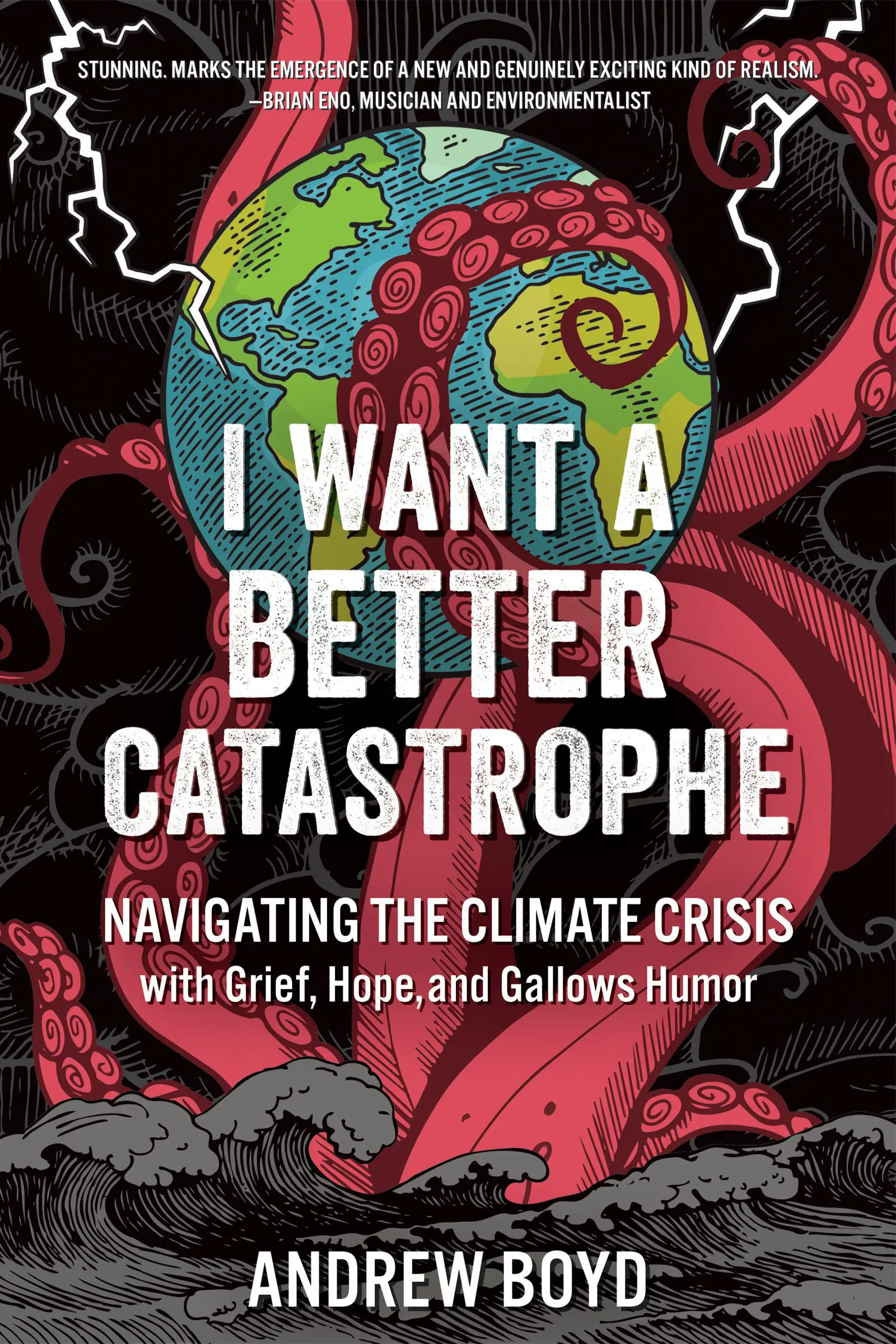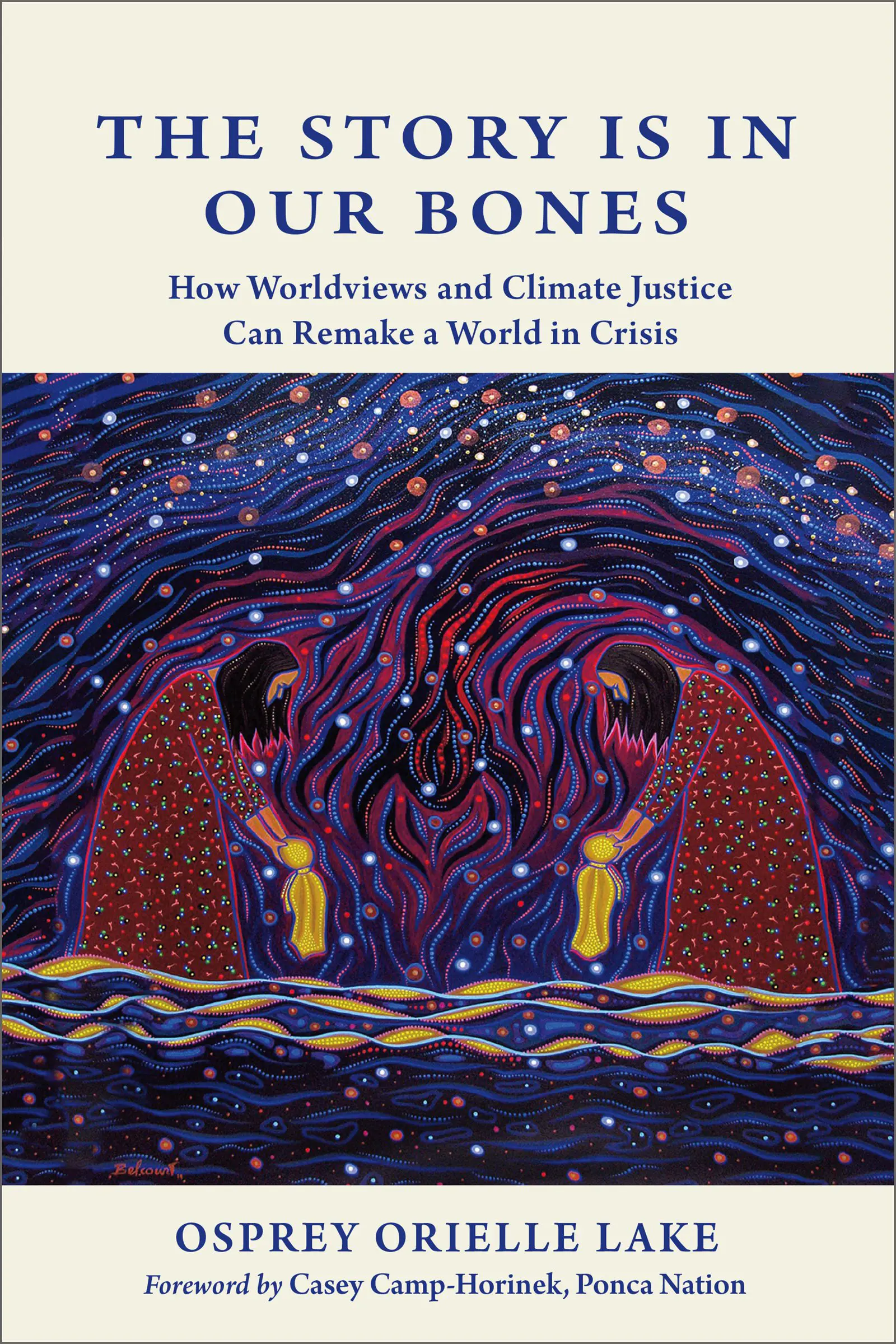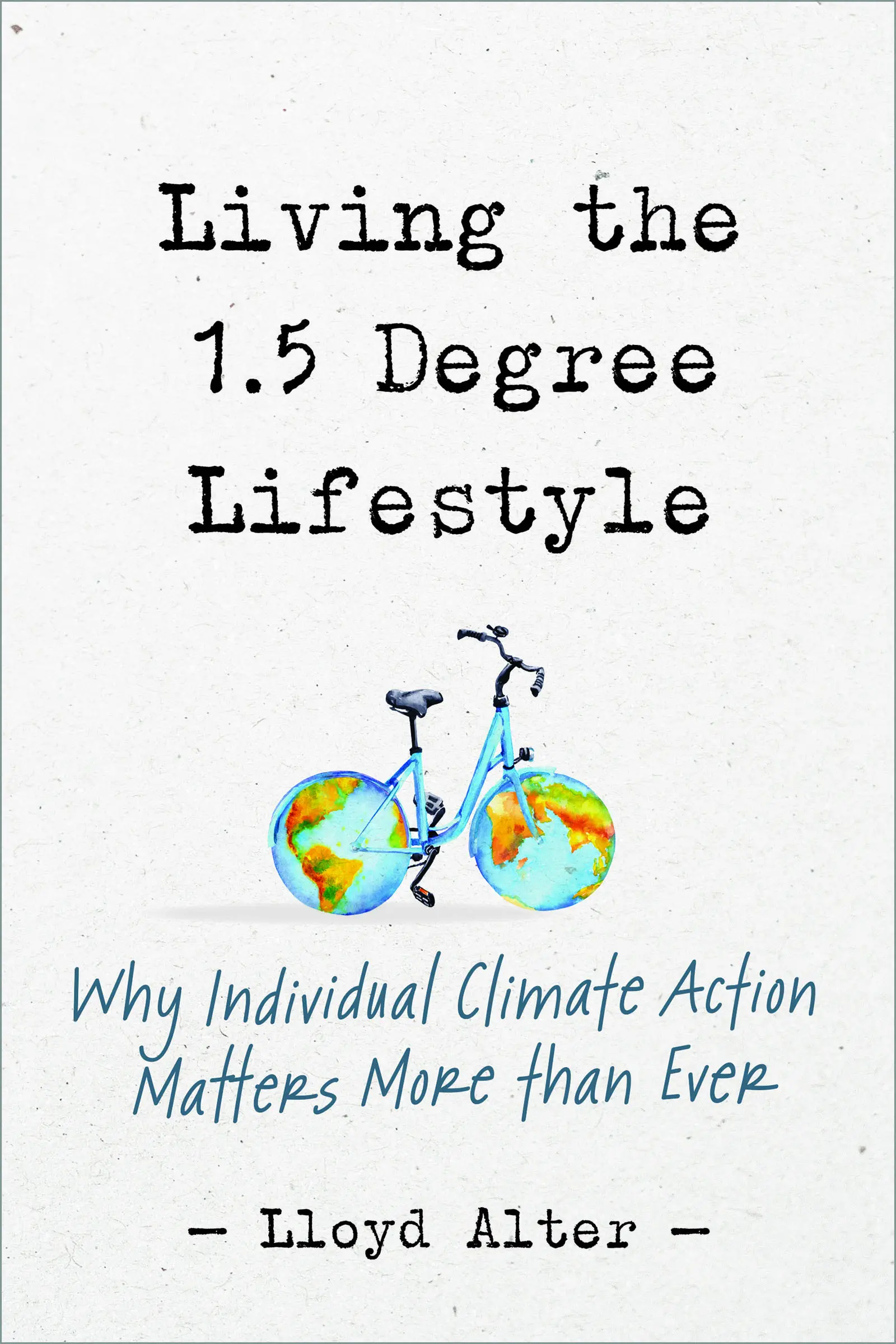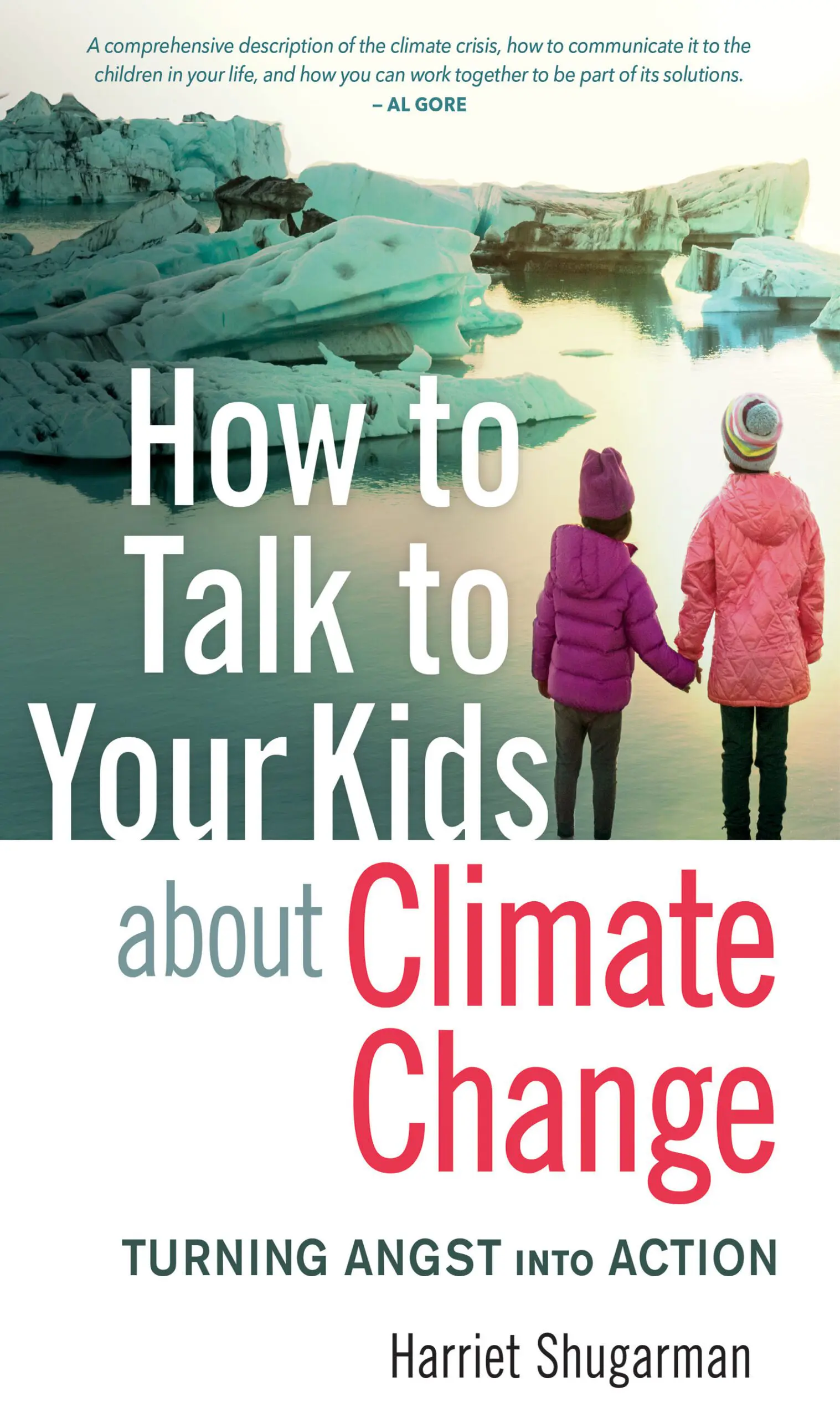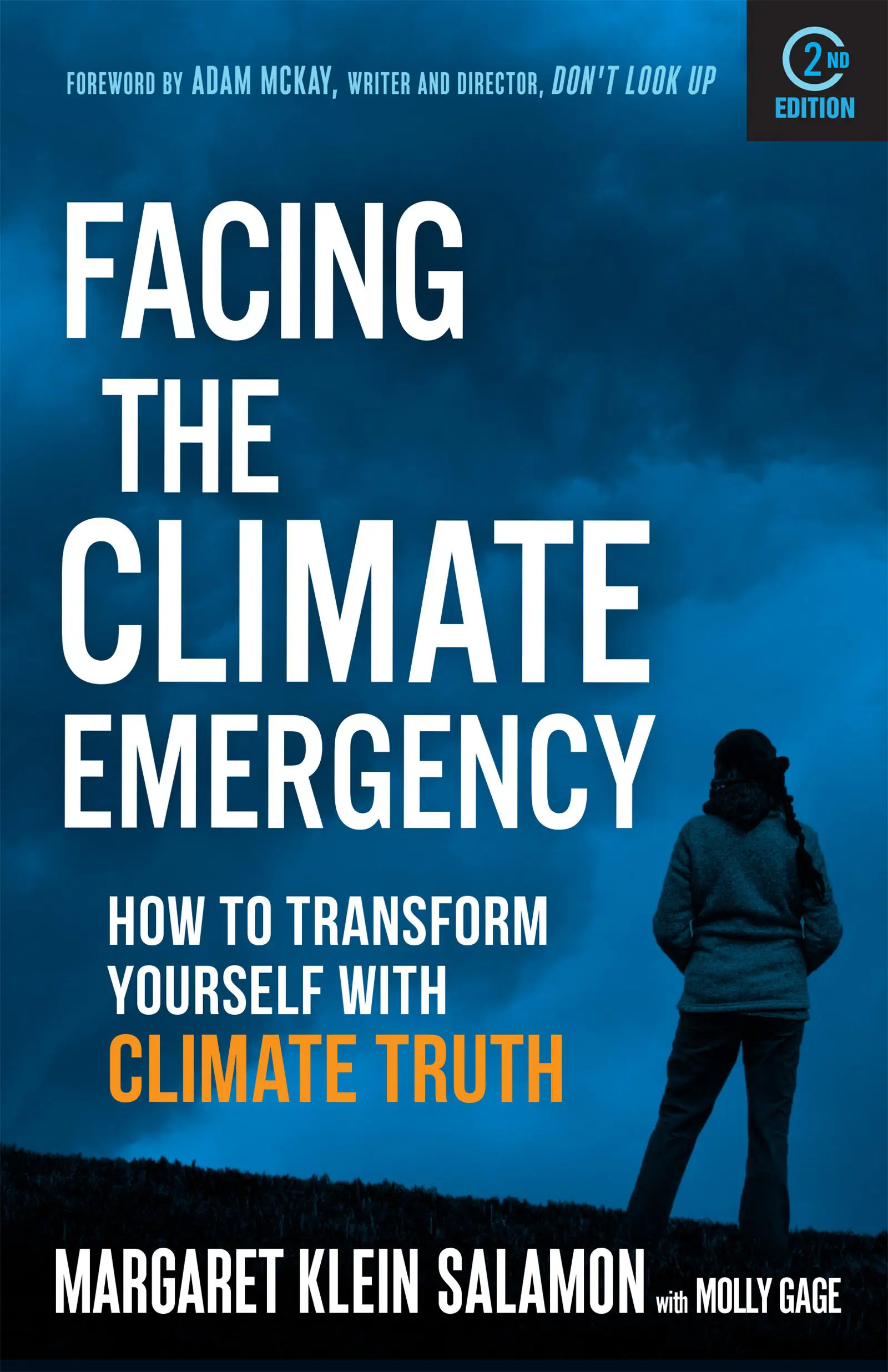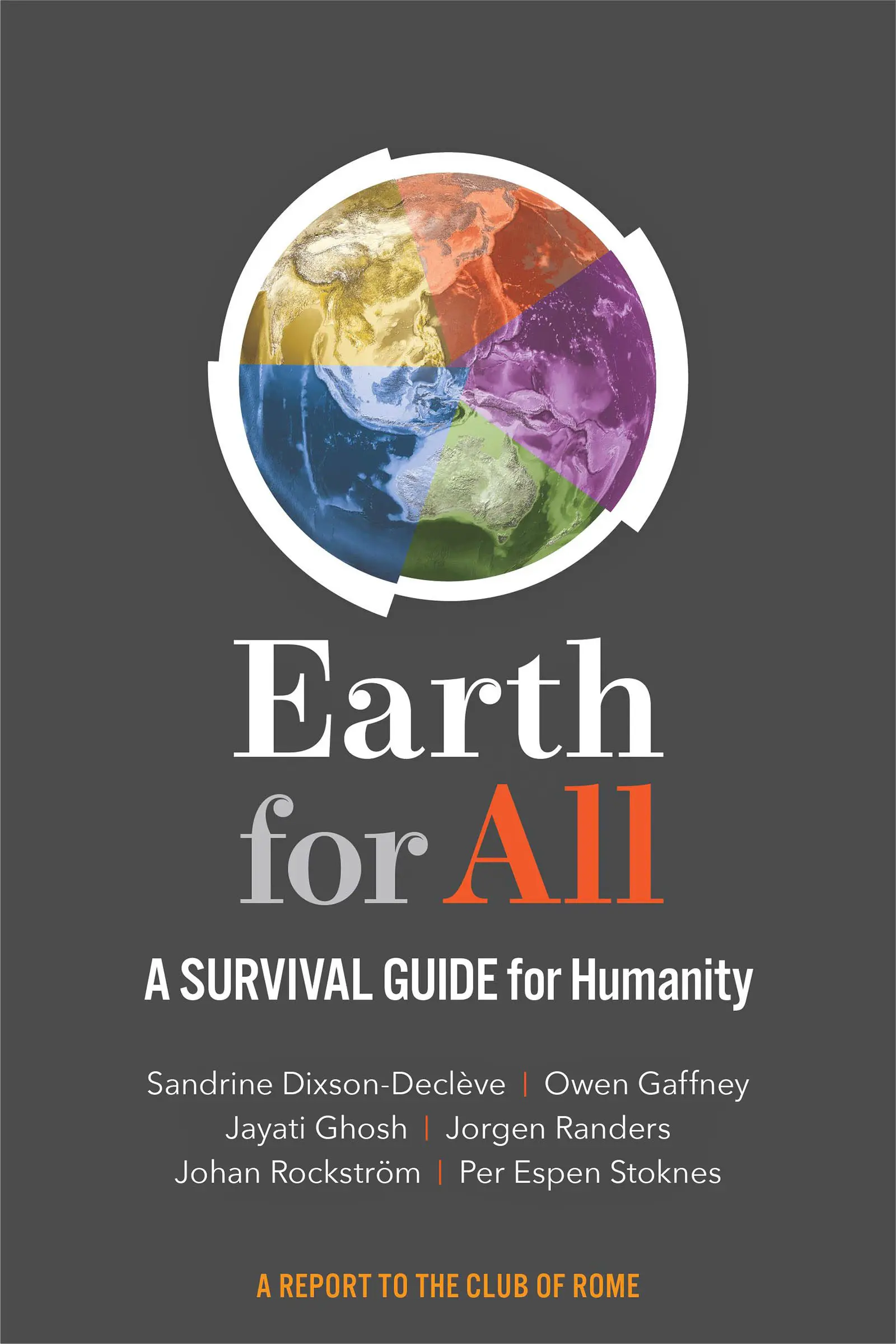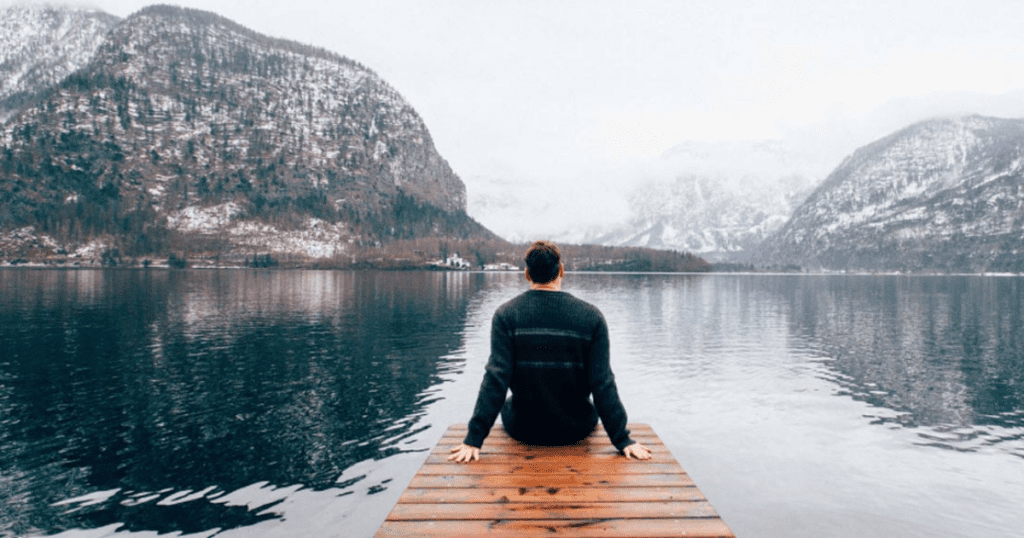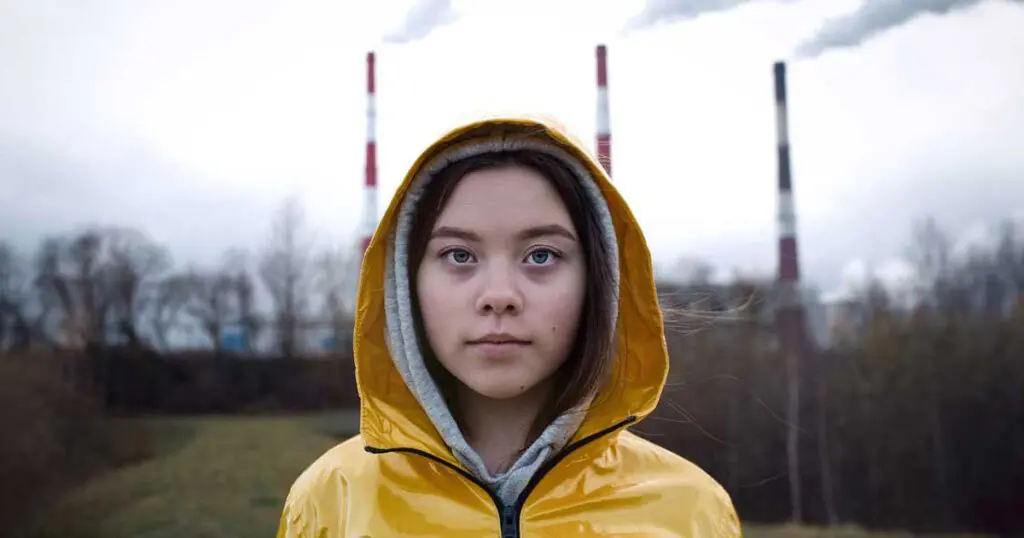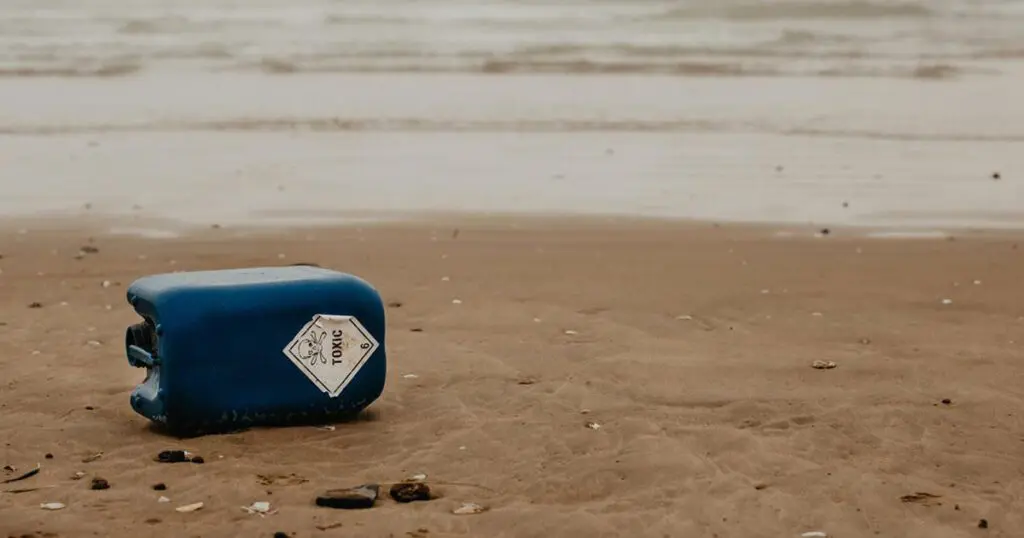
It’s hard to imagine those speaking at NY Climate Week, self-identifying as being in climate denial but that’s exactly what Andrew Boyd does, kind of. In his hilarious, heart-breaking book, I Want A Better Catastrophe, Boyd outlines the five stages of climate grief. Spoiler alert, the first stage, like most first stages, is denial. However, how Andrew explains climate denial may not necessarily mean what you think it does. Read what Andrew says about the first stage of denial below.
1. Denial: The wisdom of denial.
Climate denial ain’t just a river in Egypt; it’s a cynical multimillion-dollar fossil-fuel-industry lobby in Washington, DC. Exxon and Shell might play dumb, but for more than 30 years they and their ilk have known that humans were warming the planet, and to put off their day of reckoning, they’ve poured over $80 million into an orchestrated campaign of climate denial. For them, almost any argument to prevent meaningful climate action will do, a propaganda strategy one could neatly sum up (with help from the good folks at rationalwiki) like so:
First they say global warming isn’t happening, so we don’t have to do anything about it. Then: global warming is happening, but it’s not caused by humanity— so we don’t have to do anything about it. Next, it’s on to: global warming is happening, it is caused by humanity, but China and India aren’t doing anything— so we don’t have to do anything about it. When that doesn’t work: global warming is happening, it is caused by humanity, and maybe China and India are willing to do something, but “science will find a way”— so we don’t have to do anything about it. Until finally: Sorry folks, global warming was happening, it was caused by humanity, and previous governments could and should have done something, but it’s too late now!
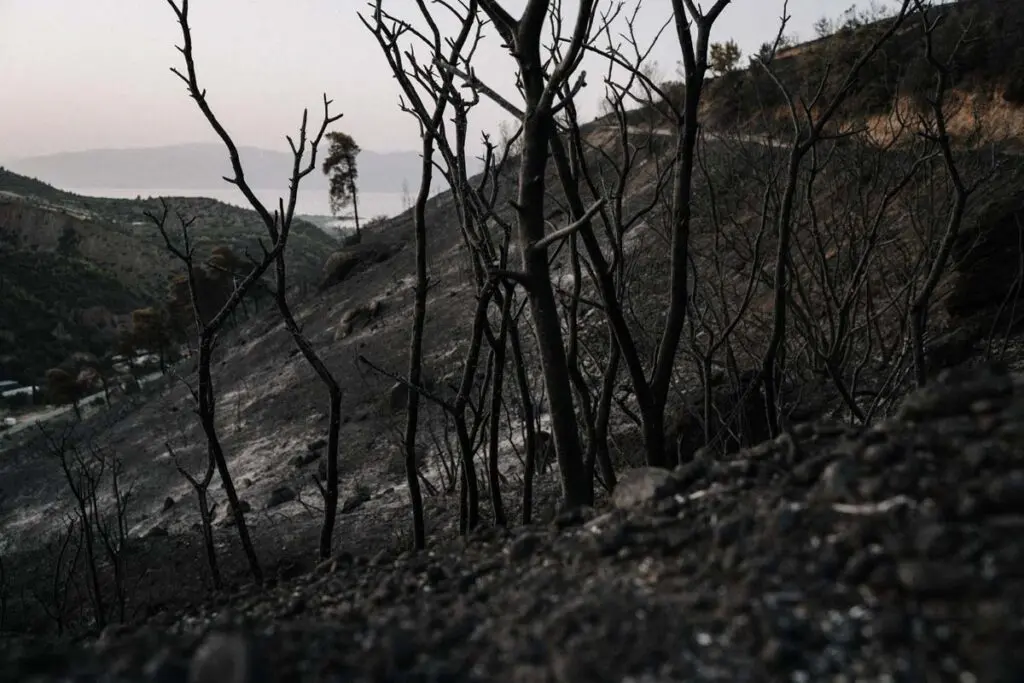
This kind of “denial” is nothing but a strategic pose, a cynical ploy to keep the profits flowing. These “Merchants of Doubt” (as historians Naomi Oreskes and Erick Conway call them) and their political allies have effectively declared war on the Earth and the future of humanity and we must be merciless in debunking their lies.
But there are other kinds of denial that might deserve more compassion, in part because they’re not destroying the planet for their own greed. Consider the busy parent who’s just not paying attention. The “solution-averse” libertarian who doesn’t want the government to mess with his thermostat. Or the 39% of Americans, according to a 2014 Public Religion Research Institute poll, who believe God will intercede to stop humans from destroying the earth. These are deeper stories. And, if past history is any indication, they’re deep enough to hold strong, year after year, even in the face of overwhelming evidence to the contrary.
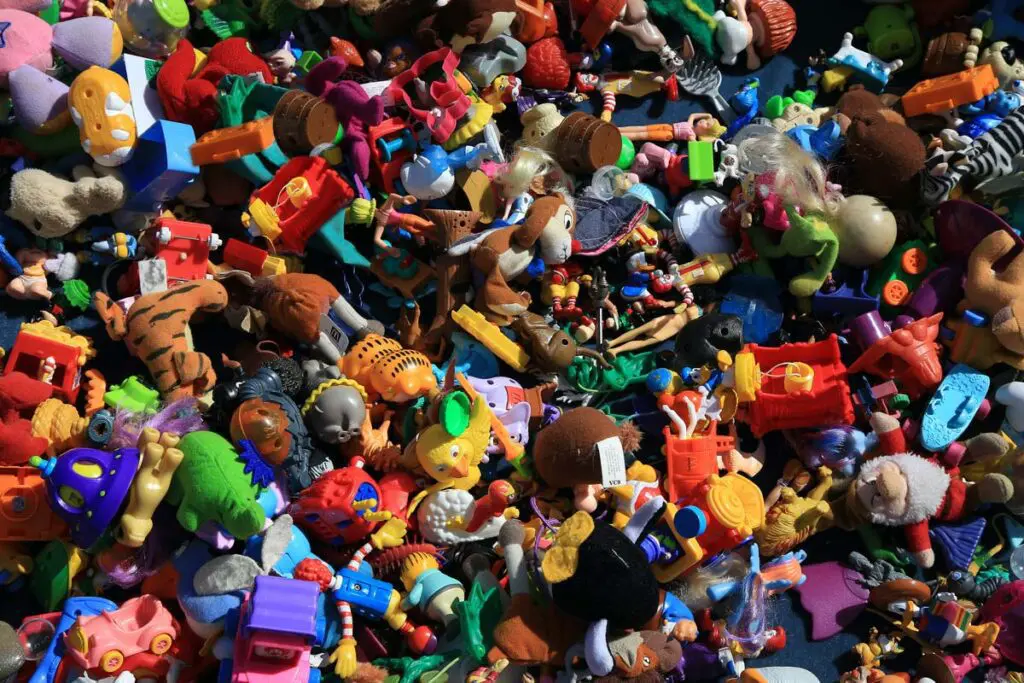
In The Worst Hard Times, Tim Egan writes about the 1930s Dust Bowl, arguably the worst human-caused U.S. environmental disaster prior to the one we are creating now. Unlike the Joad family of Grapes of Wrath fame and other “Okies” who packed up and went west, Egan focuses on the people who stayed put and rode out the disaster. Alongside useful survivalist lessons (What do you eat after four years of crop failures? Key: rabbit stew), the book is a revelation about the persistence of denial.
Even after eight years of horrible conditions— and powerful evidence that the Dust Bowl was a human-created disaster (the result of humans plowing up arid plains and grasslands not suited to agriculture)— many persisted in their belief that it was just God’s will, and what they needed to do was behave better. Others continued with a ghoulish boosterism that things would get better. A full third-to-half of the regional population never fully grasped the scientific explanation.
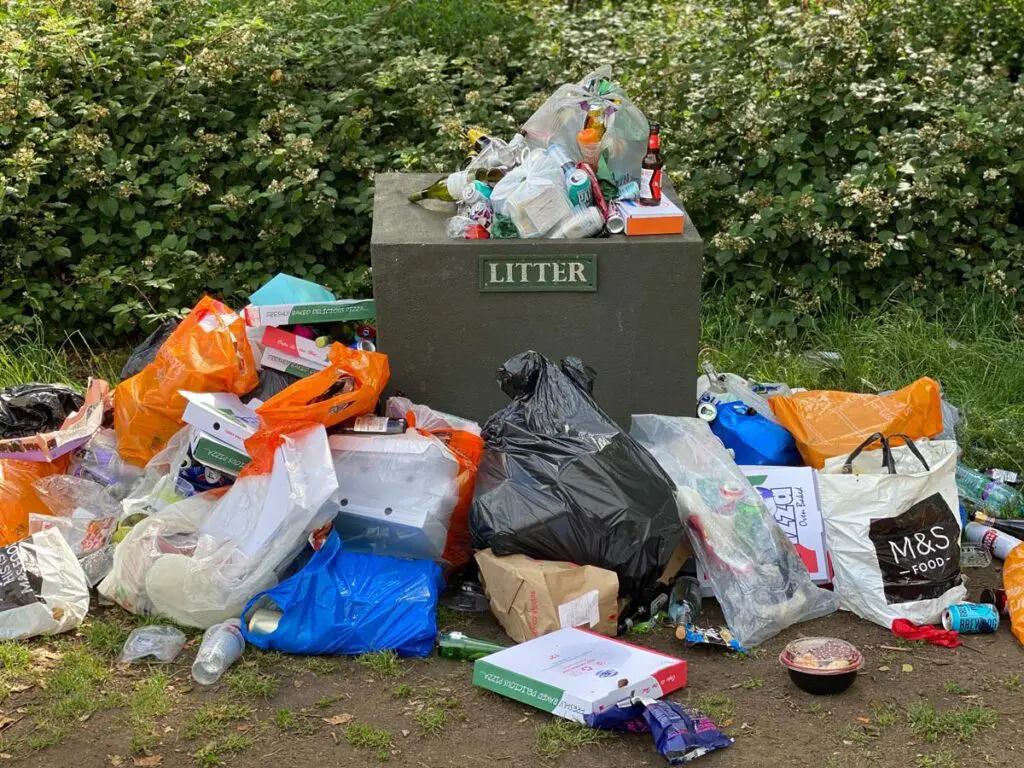
One could imagine, a hundred years from now, even after rising tides have taken our homes, even after there’s no fossil fuel industry left to defend, that some hard-core believers will persist in denying the climate science. And why not? If denial helped folks (at least psychologically) get through one of the worst hard times of the last century, why wouldn’t denial help us get through the even worse hard times coming in the next century?
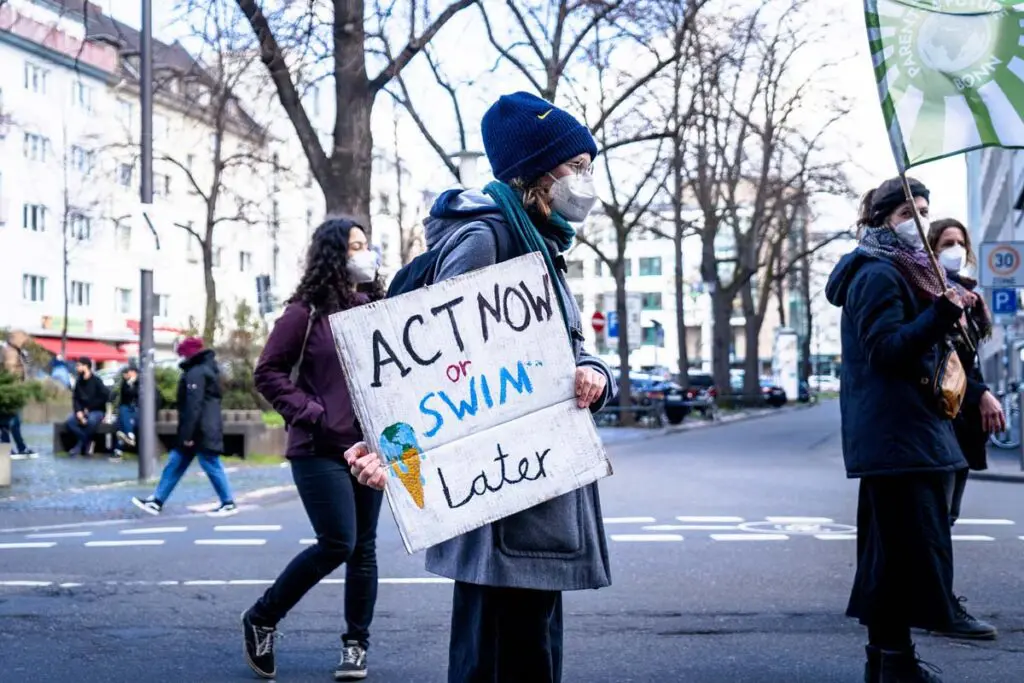
For those of us who accept mainstream climate science, and recognize the clear and present danger, it’s easy to rail against those who don’t “get it,” and clump them in with the Merchants of Doubt. In doing so, however, we not only demonize a lot of decent folks, but also conveniently set ourselves up as the righteous smarty-pants in this story.
Well, not so fast.
Because if we’re honest with ourselves, I think we’d have to admit that we’re in our own kind of denial— not factual denial of the science, but emotional denial of the full reality of the carnage to come, the difficult changes we need to make in our own lives, and the possibility that it’s already too late. Of course we’re in denial. The consequences of catastrophic climate change are daunting, almost too terrifying to contemplate, and denial can help us through it.
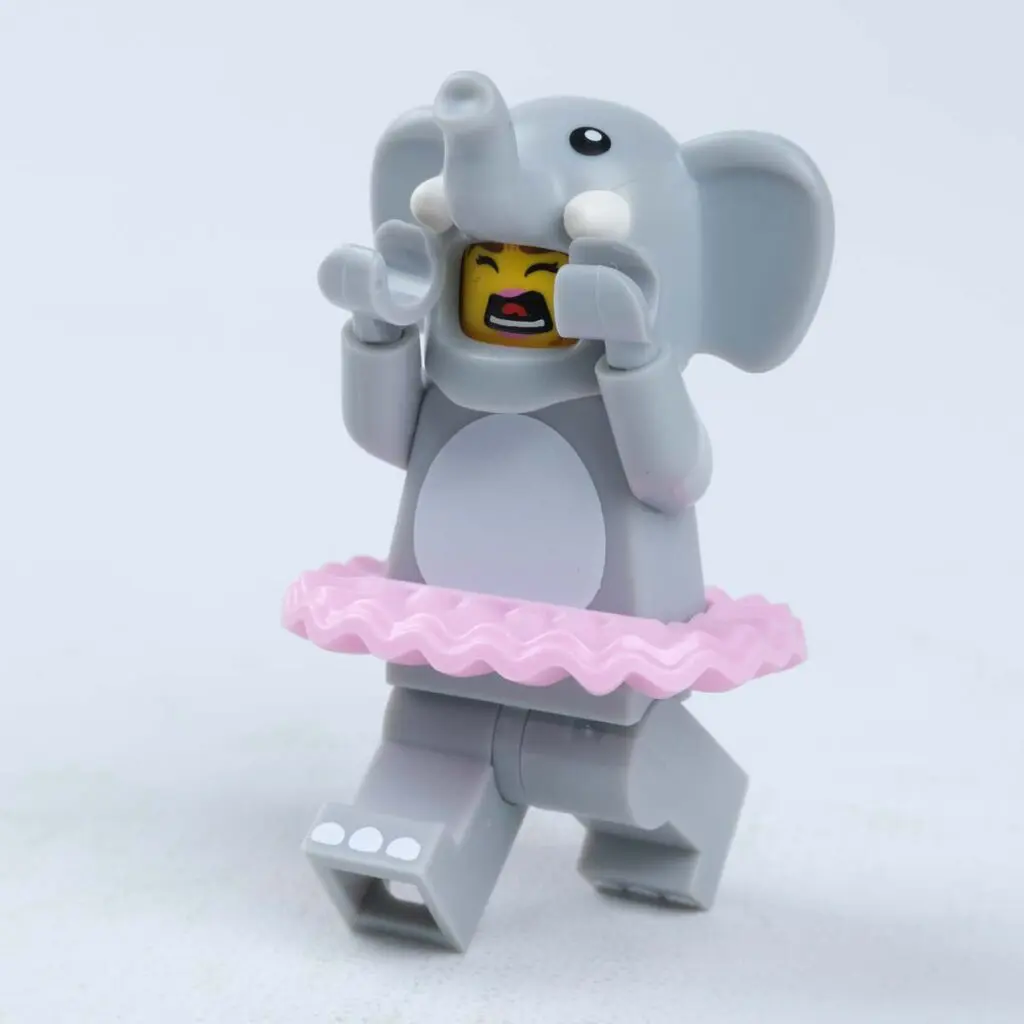
There’s a wisdom in denial. It’s as much an act of psychic self-preservation as it is a refusal of reality. My mind knows the climate science is true, but my body hasn’t felt the consequences yet. In spite of being in New York during Hurricane Sandy, I have no climate scars. Meanwhile, my heart, like the valve it is, slowly titrates the impossible news. I too am a climate denier. I say this softly to myself. It feels weird. But it’s true. At some level we’re all in denial. It isn’t the irrational deniers vs. the rational rest of us. No, we are all on a spectrum of denial. In fact, we all need to be in denial.
Denial buys us the time our hearts need to gradually break open to the terribleness of it all. In this sense, denial is an odd kind of courage— a handmaiden to the will, hope’s necessary accomplice. If hope is a somewhat wanton decision to believe in the impossible (or at least the highly improbable), then how could hope possibly accomplish this extraordinary non-rational task without a certain kind of denial working alongside it?
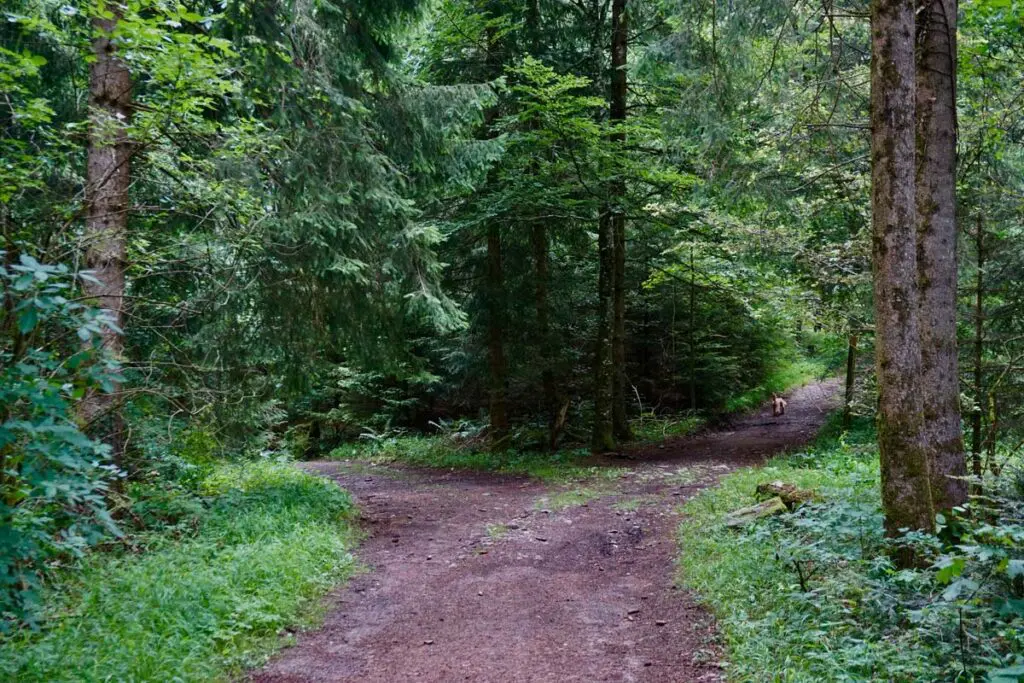
Consider the difference between these two statements:
- “There’s nothing wrong here.”
- “There’s nothing wrong here we can’t fix.”
They’re both made in denial, but with a crucial difference. One pretends there’s no problem; the other pretends the problem can be solved (or at least mitigated). One leads to paralysis; the other to action. Both protect us emotionally; the second one, however, might, at the same time, also help protect us in reality. If we can shift our allegiance from the first to the second, we find that the protective wall of denial we need is still there. Only now, instead of fear and junk science, it’s made out of hope, and solidarity, and a Tesla Megapack battery. You’re still emotionally protecting yourself from our horrible future, but now, every day you’re also helping to make that horrible future slightly less horrible.
In the end, maybe hope itself is just a beautiful, human, productive, uplifting— and, yes, necessary— kind of denial. And if we have to be in some kind of denial, let’s choose wisely which kind.

